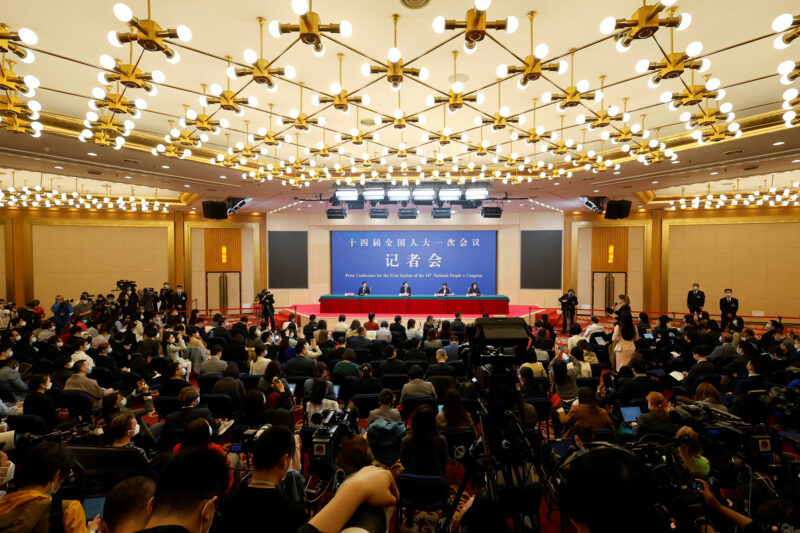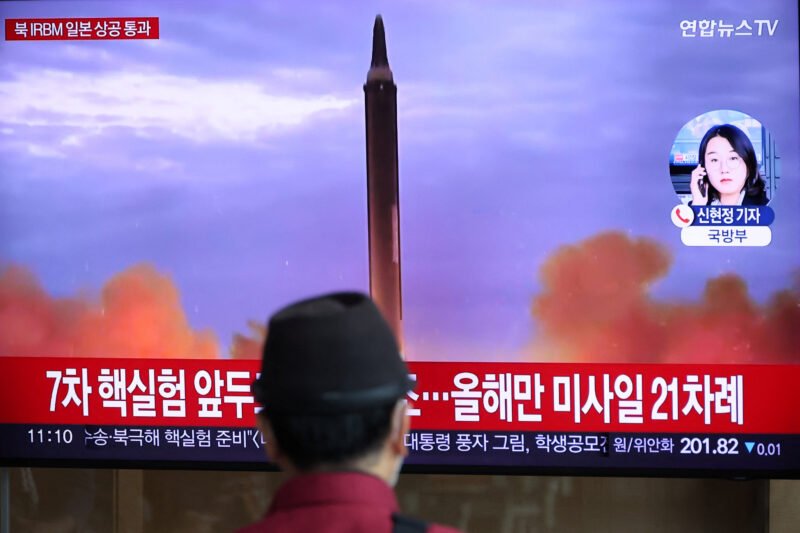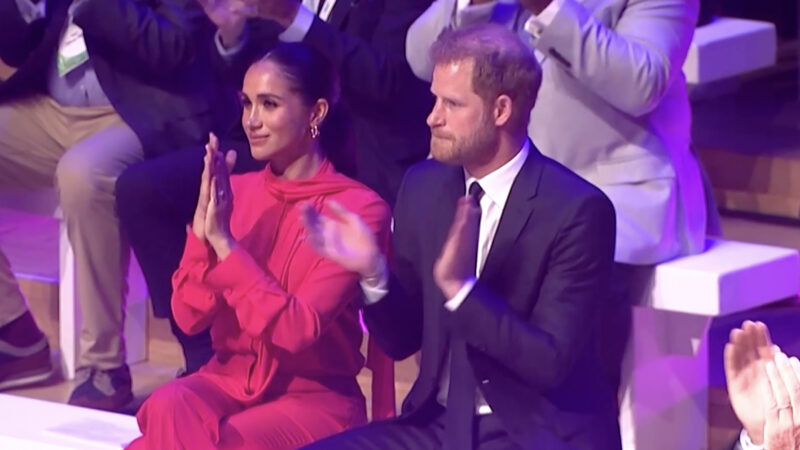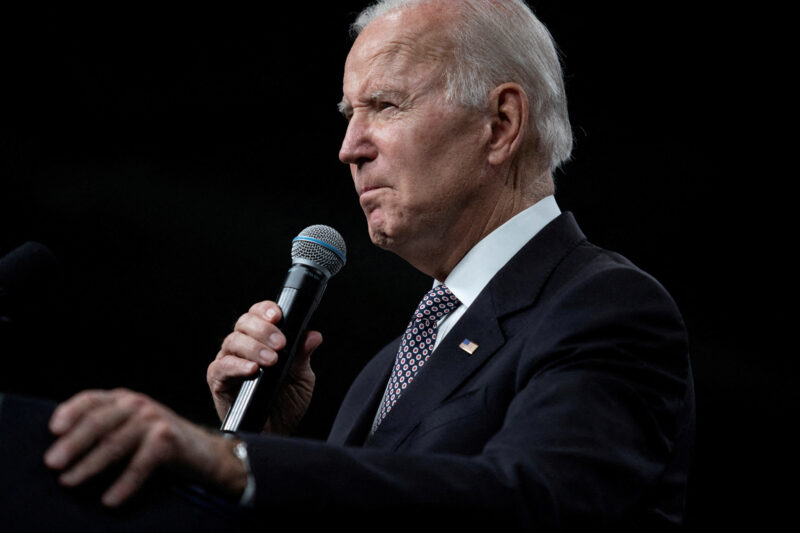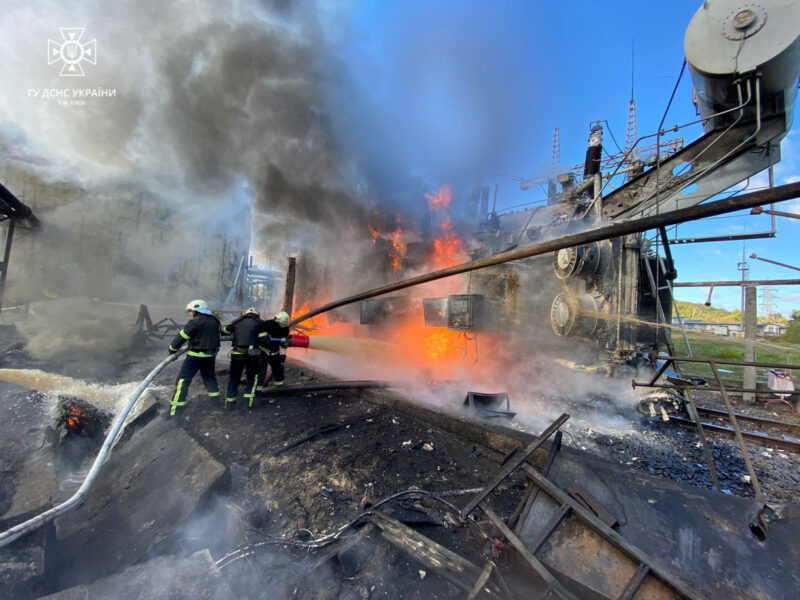BEIJING (Reuters) -The United States should change its “distorted” attitude towards China or “conflict and confrontation” will follow, China’s foreign minister said on Tuesday, while defending its stance on the war in Ukraine and defending its close ties with Russia.
The U.S. had been engaging in suppression and containment of China rather than engaging in fair, rule-based competition, Foreign Minister Qin Gang told a news conference on the sidelines of an annual parliament meeting in Beijing.
“The United States’ perception and views of China are seriously distorted,” said Qin, a trusted aide to President Xi Jinping and until recently China’s ambassador in Washington.
“It regards China as its primary rival and the most consequential geopolitical challenge. This is like the first button in the shirt being put wrong.”
Relations between the two superpowers have been tense for years over a number of issues including Taiwan, trade and more recently the war in Ukraine but they worsened last month after the United States shot down a balloon off the U.S. East Coast that it says was a Chinese spying craft.
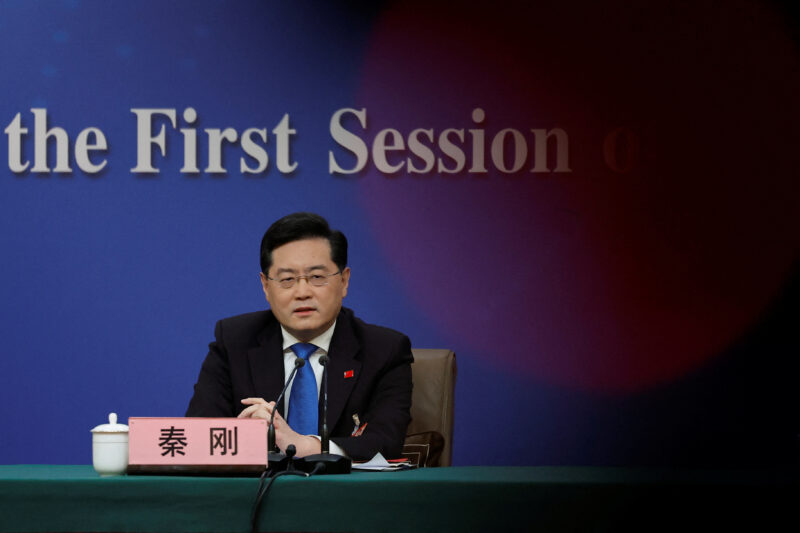
The U.S. says it is establishing guardrails for relations and is not seeking conflict but Qin said what that meant in practice was that China was not supposed to respond with words or action when slandered or attacked.
“That is just impossible,” Qin told his first news conference since becoming foreign minister in late December.
Qin’s comments struck the same the tough tone of his predecessor, Wang Yi, now China’s most senior diplomat after being made director of the Foreign Affairs Commission Office at the turn of the year.
“If the United States does not hit the brakes, and continues to speed down the wrong path, no amount of guardrails can prevent derailment, which will become conflict and confrontation, and who will bear the catastrophic consequences?”
U.S. officials often speak of establishing guardrails in the bilateral relationship to prevent tensions from escalating into crises.
Qin likened Sino-U.S. competition to a race between two Olympic athletes.
“If one side, instead of focusing on giving one’s best, always tries to trip the other up, even to the extent that they must enter the Paralympics, then this is not fair competition,” he said.
‘JACKALS AND WOLVES’
During a nearly two-hour news conference in which he answered questions submitted in advance, Qin made a robust defence of “wolf warrior diplomacy”, an assertive and often abrasive stance adopted by China’s diplomats since 2020.
“When jackals and wolves are blocking the way, and hungry wolves are attacking us, Chinese diplomats must then dance with the wolves and protect and defend our home and country,” he said.
Qin also said that an “invisible hand” was pushing for the escalation of the war in Ukraine “to serve certain geopolitical agendas”, without specifying who he was referring to.
He reiterated China’s call for dialogue to end the war.
China struck a “no limits” partnership with Russia last year, weeks before its invasion of Ukraine, and China has blamed NATO expansion for triggering the war, echoing Russia’s complaint.
China has declined to condemn the invasion and has fiercely defended its stance on Ukraine, despite Western criticism of its failure to single Russia out as the aggressor.
China has also vehemently denied U.S. accusations that it has been considering supplying Russia with weapons.
ADVANCING RELATIONS WITH MOSCOW
Qin said China had to advance its relations with Russia as the world becomes more turbulent and close interactions between President Xi Jinping and his Russian counterpart, Vladimir Putin, anchored the neighbours’ relations.
He did not give a definite answer when asked if Xi would visit Russia after China’s parliament session, which goes on for one more week.
Since Russia invaded its southwestern neighbour a year ago Xi has held talks several times with Putin, but not with his Ukrainian counterpart. This undermines China’s claim of neutrality in the conflict, Kyiv’s top diplomat in Beijing said last month.
Asked whether it was possible that China and Russia would abandon the U.S. dollar and euro for bilateral trade, Qin said countries should use whatever currency was efficient, safe and credible.
China has been looking to internationalise its currency, the yuan, which gained popularity in Russia last year after Western sanctions shut Russia’s banks and many of its companies out of the dollar and euro payment systems.
“Currencies should not be the trump card for unilateral sanctions, still less a disguise for bullying or coercion,” Qin said.
(Reporting by Yew Lun Tian, Laurie Chen, Ryan Woo and the Beijing Newsroom; Writing by Martin Quin Pollard; Editing by Lincoln Feast and Tom Hogue)

